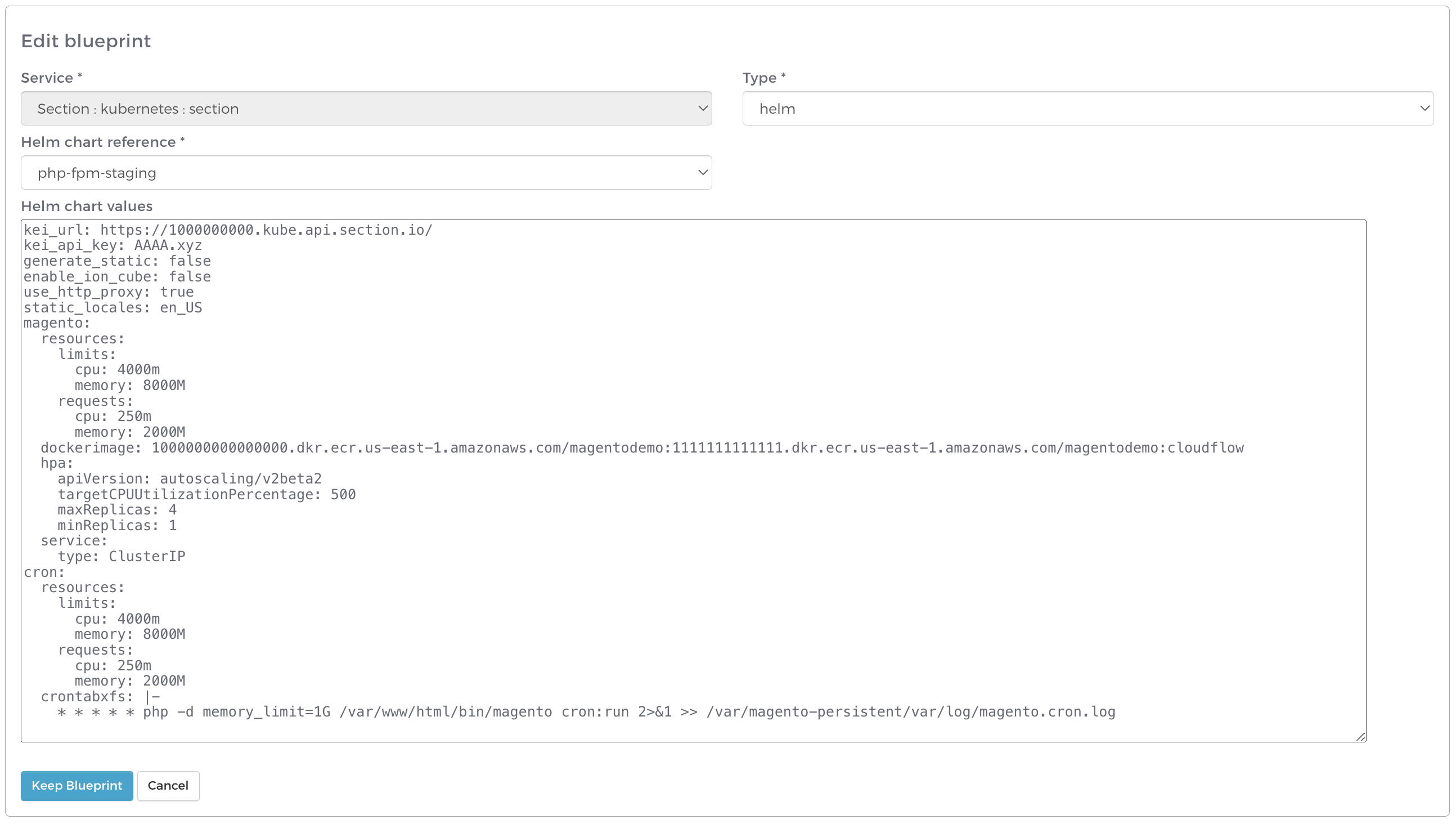Configuration
In the Webscale Control Panel Cluster Editor, CloudFlow Commerce M configuration values are provided. These are injected into the php-fpm helm chart that is uploaded to Webscale Files, and selected via the Helm chart reference dropdown in the cluster blueprint editor, shown below.
Note: Modifying any attributes in the Cluster Blueprint will trigger a new deployment.
| Key | Value |
|---|---|
| kei_url | API endpoint of the Kubernetes Edge Interface API managing the CloudFlow environment |
| kei_api_key | API Key to authenticate with Kubernetes Edge Interface |
| generate_static | False if static content is generated at build time. Defaults to true. |
| enable_ion_cube | True if the ion cube PHP extension is necessary. Defaults to false. |
| use_http_proxy | True if a fixed, known address is necessary for egress traffic. Defaults to false. |
| static_locales | Static locales to be installed when generating static content. This value is ignored if generate_static is set to false. Defaults to ‘en_US’. |
| magento.resources | CPU and memory resource requests and limits for php-fpm containers |
| magento.dockerimage | Image URI for php-fpm containers |
| magento.hpa | Scaling parameters for Kubernetes Horizontal Pod Autoscaling. This should include apiVersion: autoscaling/v2beta2, targetCPUUtilizationPercentage, minReplicas, and maxReplicas. We expect to move this to cluster configuration in the near future. |
| cron.resources | CPU and memory resource requests and limits for the cron container. A single cron container will run in the CloudFlow Commerce M environment and will be automatically disabled during deployments. |
| cron.crontabxfs | Crontab to execute in the cron container |
Feedback
Was this page helpful?
Glad to hear it! Have any more feedback? Please share it here.
Sorry to hear that. Have any more feedback? Please share it here.
Last modified February 23, 2024
